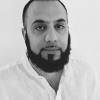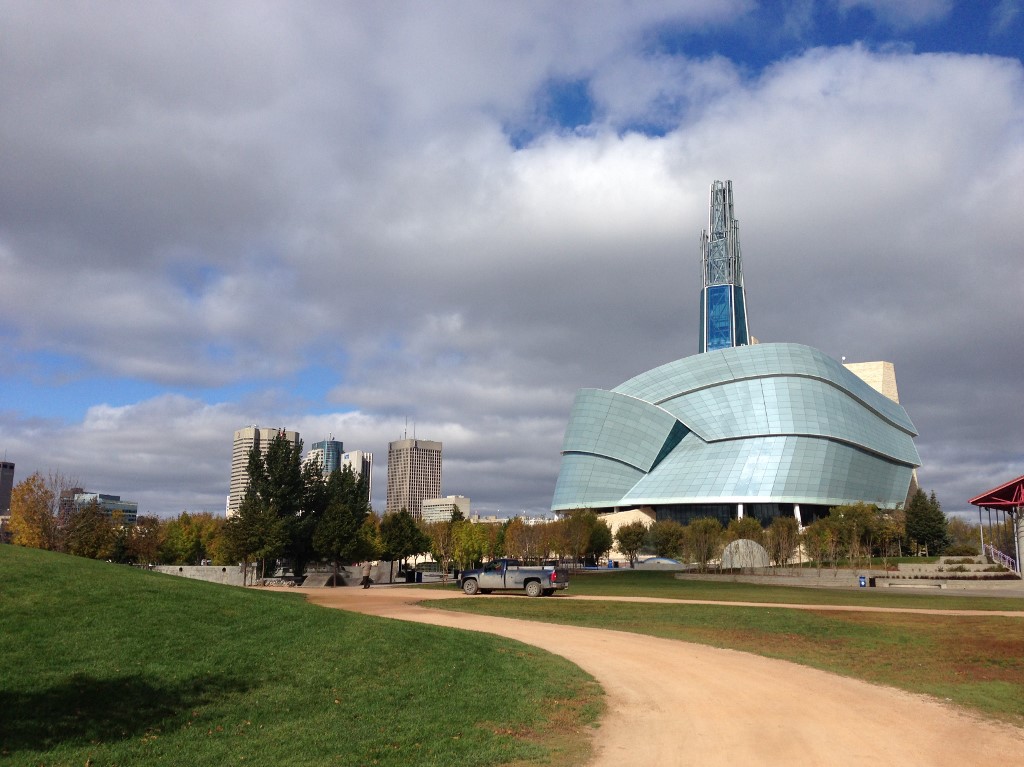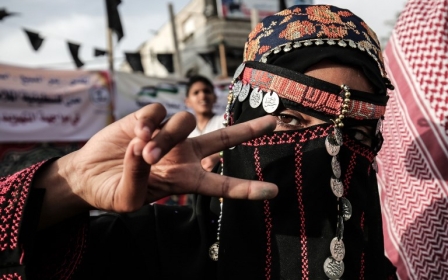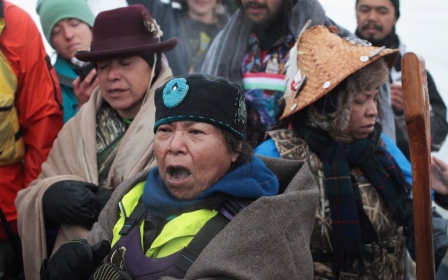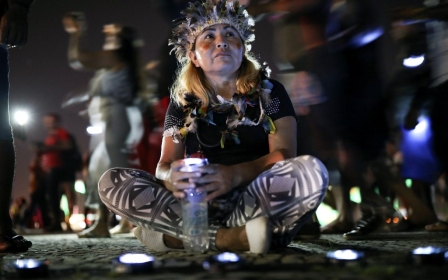Why indigenous Canadians should stand with Palestinians
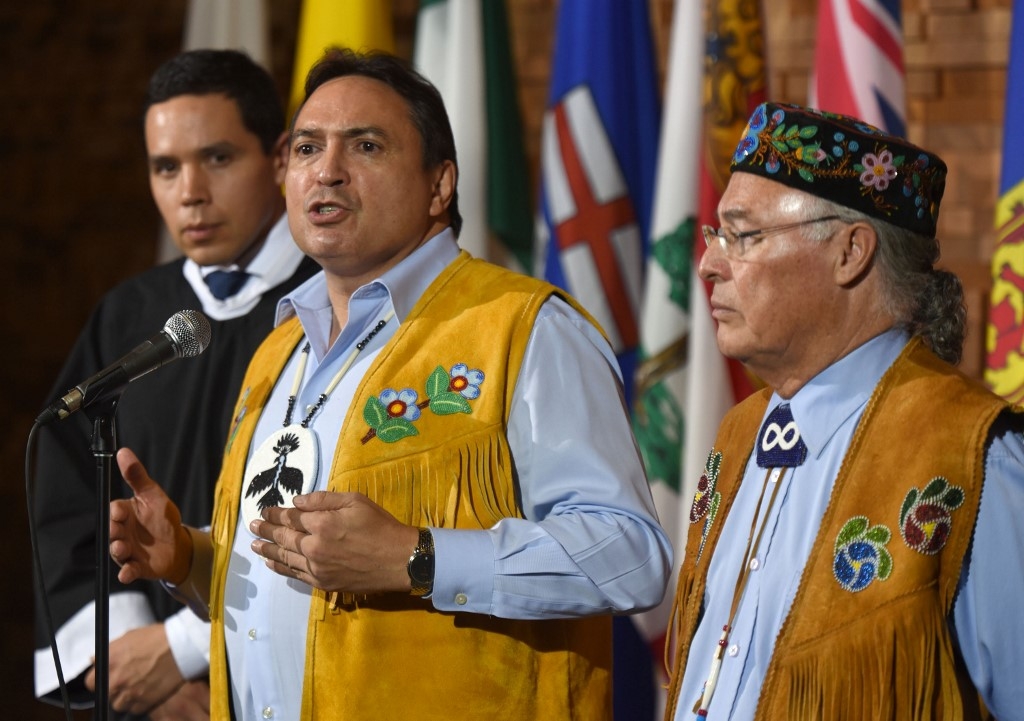
Every 15 May, Palestinians mark the anniversary of the Nakba and renew their struggle against Israel’s ongoing ethnic cleansing and genocidal policies.
Indigenous peoples around the world share a similar experience of memoricide, including in Canada. The residential school system, along with legislation such as the Indian Act of 1876, were designed to make the country’s indigenous people forget who they were by “killing the Indian in the child”. The consequences are evident today in the predominance of social ills facing indigenous people in Canada.
The Canadian Museum for Human Rights recently recognised that the country’s treatment of its indigenous population amounted to genocide. On the surface, this sounds like a progressive stance - but the reality is more complex.
Ignoring history
The timing of the museum’s statement, coinciding with Nakba Day, highlights the controversial nature of the facility when it comes to Israel/Palestine. While the Holocaust was always intended to be a central feature of the museum, Palestinians have complained that the museum ignores their history and ongoing trauma. It also sits on land containing ancient indigenous artifacts, a situation reminiscent of the Museum of Tolerance in Israel.
New MEE newsletter: Jerusalem Dispatch
Sign up to get the latest insights and analysis on Israel-Palestine, alongside Turkey Unpacked and other MEE newsletters
The mayor of Winnipeg, where the museum is located, recently attempted to prevent prominent Palestinian-American activist Linda Sarsour from speaking at a local panel discussion amid allegations of antisemitism. This same mayor personally invited then-presidential candidate Donald Trump to visit the museum in 2015.
Palestinians have been bringing to light the anti-indigenous element of Zionism since the civil rights era
This is a city with the highest urban indigenous population in Canada, one that is plagued by racism and violent crime - yet it is on a political trajectory towards being considered a "human rights city".
Systemic anti-Palestinianism appears to have lured prominent indigenous leaders, such as Phil Fontaine, Ron Evans and Wab Kinew, with pro-Zionist statements of alliance and camaraderie, emphasising claims of indigeneity by Zionists for political validity. The recent recognition by the Canadian Museum for Human Rights of the country’s indigenous genocide cements this Zionist alliance, based on the false pretence of a common victimhood.
These developments pose the question: are indigenous leaders in Canada ignorant to the struggle of indigenous Palestinians, or are they ardent Zionists who support settler-colonialism as long as it’s not hurting them? Native Americans in the US Indian Territory (now Oklahoma) owned slaves in the 19th century, and aided and abetted the system of slavery in a similar way.
Ongoing memoricide
One key tactic used by pro-Zionists to contribute to the ongoing memoricide against Palestinians is perpetuating a claim that they have indigenous rights to the historic land of Palestine. The aliyah, or right of Jews to immigrate to this land, is what distinguishes the settler-colonialism in Palestine from the broader global indigenous context.
Zionists have made such claims through religious justifications similar to those embraced by the Puritans in North America: that Palestine, known as the “promised land”, was ordained to any person who identifies as Jewish. Zionists have exploited genuine Jewish suffering to advance an incremental genocide against the Palestinians, with memoricide continuing at a steady pace.
There is a demonstrated political consciousness among Palestinian youths and young indigenous peoples from North America, also known as Turtle Island, through the development of alliances and recognition of a common plight. Yet, there is an evident pattern in which indigenous peoples have not done their due diligence on their new “allies”.
Palestinians have been bringing to light the anti-indigenous element of Zionism since the civil rights era, particularly in the famous United Nations speech of late Palestine Liberation Organisation leader Yasser Arafat.
The wrong trajectory
“Palestine was then a verdant land, inhabited mainly by an Arab people in the course of building its life and dynamically enriching its indigenous culture,” Arafat said, noting that Zionist terrorism “fed on hatred, and this hatred was even directed against the olive tree in my country, which has been a proud symbol and which reminded them of the indigenous inhabitants of the land, a living reminder that the land is Palestinian; thus, they sought to destroy it … They see in the Palestinian child, in the Palestinian tree, an enemy that should be exterminated.”
The indigenous establishment in Canada is not clear on its political stance vis-a-vis Palestine, either due to ignorance or anti-Palestinianism. Living an oxymoron becomes fodder for oppression, as history illustrates - and in this regard, indigenous Canadian leaders are clearly on the wrong trajectory.
The views expressed in this article belong to the author and do not necessarily reflect the editorial policy of Middle East Eye.
Middle East Eye delivers independent and unrivalled coverage and analysis of the Middle East, North Africa and beyond. To learn more about republishing this content and the associated fees, please fill out this form. More about MEE can be found here.


